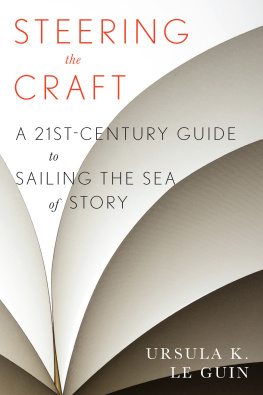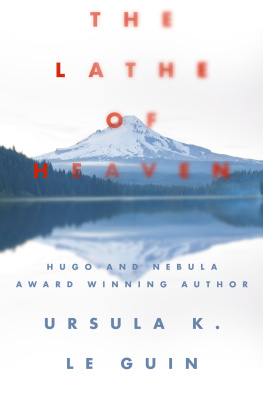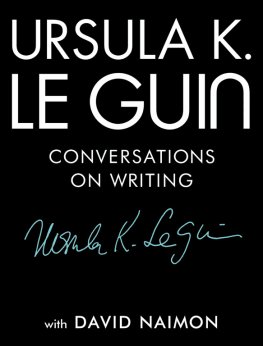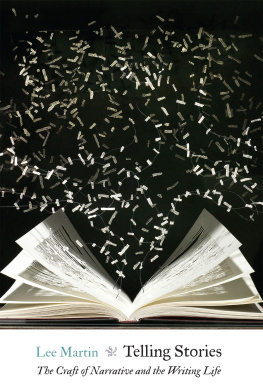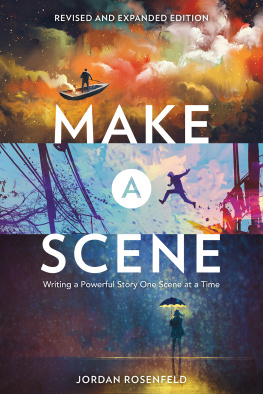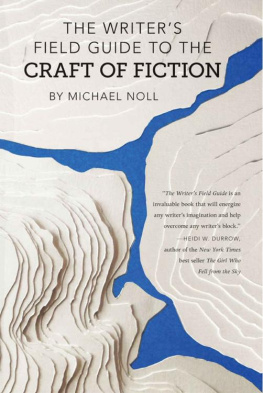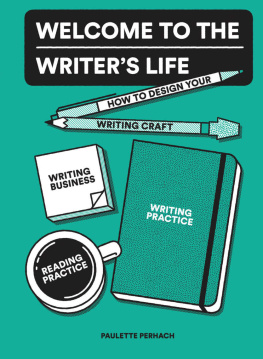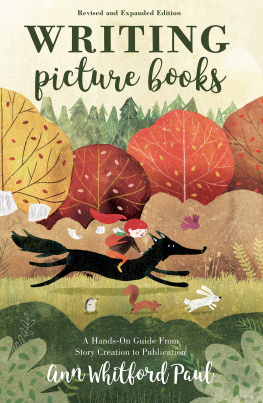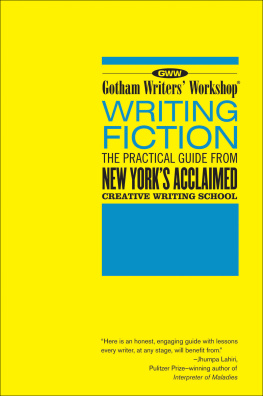First Mariner Books edition 2015
Copyright 1998 by Ursula K. Le Guin
ALL RIGHTS RESERVED
For information about permission to reproduce selections from this book, write to Permissions, Houghton Mifflin Harcourt Publishing Company, 215 Park Avenue South, New York, New York 10003.
www.hmhco.com
Library of Congress Cataloging-in-Publication Data is available.
ISBN 978-0-544-61161-0
Sailboat image by Celia Jaber, licensed from http://thenounproject.com/term/sail-boat/17570/.
Cover design by Mark R. Robinson
Cover photograph Thomas Vogel/Getty Images
e ISBN 978-0-544-61234-1
v1.0915
Excerpt from The Hearts of Horses: A Novel by Molly Gloss, copyright 1989 by Molly Gloss. Reprinted by permission of Houghton Mifflin Harcourt Publishing Company. All rights reserved.
Excerpts from To the Lighthouse by Virginia Woolf, copyright 1927 by Houghton Mifflin Harcourt Publishing Company. Copyright renewed 1954 by Leonard Woolf. Used by permission of Houghton Mifflin Harcourt Publishing Company. All rights reserved. Excerpts from To the Lighthouse by Virginia Woolf also used by permission of the Society of Authors as the Literary Representative of the Estate of Virginia Woolf.
Excerpt from The Lord of the Rings by J.R.R. Tolkien, copyright 1954, 1955, 1965, 1966 by J.R.R. Tolkien. Copyright renewed 1982, 1983 by Christopher R. Tolkien, Michael H. R. Tolkien, John F. R. Tolkien, and Priscilla M.A.R. Tolkien. Copyright renewed 1993, 1994 by Christopher R. Tolkien, John F. R. Tolkien, and Priscilla M.A.R. Tolkien. Reprinted by permission of HarperCollins Publishers Ltd. All rights reserved.
Brief excerpt from pp. 12 from Their Eyes Were Watching God by Zora Neale Hurston, copyright 1937 by Zora Neale Hurston. Renewed 1965 by John C. Hurston and Joel Hurston. Foreword copyright 2000 by Edwidge Danticat. Reprinted by permission of HarperCollins Publishers.
introduction
THIS BOOK
This is a handbook for storytellerswriters of narrative prose.
I want to say up front, it is not a book for beginners. Its meant for people who have already worked hard at their writing.
Fifteen or more years ago, I was getting students in my workshops who were serious, talented writers yet were afraid of semicolons and likely to confuse a point of view with a scenic vista. They needed to learn technique, to work on their craft, to get some navigational skills before they took the boat out across the Pacific. So in 1996 I developed a workshop called Steering the Craft, focused on the glamorous aspects of writing, the really sexy stuffpunctuation, sentence length, grammar...
That five-day workshop drew fourteen intrepid writers, willing to face any semicolon and tame any verb tense. Their input and feedback was invaluable to me. Using my notes and their responses, I turned the workshop into a book, a self-guided set of discussion topics and exercises for a writer or a small group. Carrying on the title metaphor, I called them the Lone Navigator and the Mutinous Crew.
Steering the Craft was published in 1998. It met with an enthusiastic reception and sold steadily for about ten years. By then both writing and publishing were changing so fast that I began to think about updating the book. I ended up rewriting it from stem to stern.
Its still aimed at story-writers who seek thought, discussion, and practice in the fundamentals of narrative prose: the sound of itpunctuation, syntax, the sentence, the verb, the adjective; voice and point of viewdirection and indirection; whats included and whats left out. Each chapter includes a discussion of the topic, examples of it from good writers, and exercises offering the reader guidance in avoiding pitfalls, practice in control, and a sense of the pleasure of writing, of playing the real, great word games.
All the material has been rethought, made clearer, more accurate, and more useful to writers of the twenty-first century. The exercises profited from a great deal of feedback from users of the book, reporting on which ones worked and which didnt, on the clarity or confusingness of directions, and so on. Peer group workshops are now so important to so many writers that I enlarged my discussion of them and suggestions for how to make them work and included more about online groups.
Our schools now often teach little of an essential and once common knowledge, the vocabulary of grammarthe techspeak of language and writing. Words such as subject, predicate, object, or adjective and adverb, or past tense and past-perfect tense, are half understood by or wholly unfamiliar to many. Yet theyre the names of the writers tools. Theyre the words you need when you want to say whats wrong or right in a sentence. A writer who doesnt know them is like a carpenter who doesnt know a hammer from a screwdriver. (Hey, Pat, if I use that whatsit there with the kinda pointy end, will it get this thing into this piece of wood?) In this revision, though I cant do a crash course in English grammar and usage, I urge my writer-readers to consider the value of the marvelous tools their language provides and to get truly familiar with them, so that they can play with them freely.
In the past twenty years, writing itself has begun to be differently understood in many ways, while publishing has been going through overwhelming and bewildering changes. I wanted my book to reflect the risks and chances of sailing the stormy waters of publishingprint and electronicin this day and age, while never losing sight of the pole stars of the art of storytelling: how prose works and how a story moves.
Theres no sea chart for a boat in a hurricane. But there are still some basic ways to make her seaworthy and keep her from capsizing, going to pieces, or hitting an iceberg.
THE LONE NAVIGATOR AND THE MUTINOUS CREW
Collaborative workshops and writers peer groups are good inventions. They put the writer into a community of people all working at the same art, the kind of group musicians and painters and dancers have always had. A good peer group offers mutual encouragement, amicable competition, stimulating discussion, practice in criticism, and support in difficulty. If you want to and are able to join a group, do so. If you long for the stimulus of working with other writers but cant find or attend a local group, look into the many possibilities of forming or joining one on the Internet. You might form a Virtual Mutinous Crew using this book together via e-mail.
But if it doesnt work out, dont feel cheated or defeated. You can attend many writing workshops led by famous writers or be a member of many peer groups and yet get no closer to finding your own voice as a writer than you might do working alone in silence.
Ultimately you write alone. And ultimately you and you alone can judge your work. The judgment that a work is completethis is what I meant to do, and I stand by itcan come only from the writer, and it can be made rightly only by a writer whos learned to read her own work. Group criticism is great training for self-criticism. But until quite recently no writer had that training, and yet they learned what they needed. They learned it by doing it.
THE AIM
This is essentially a workbook. The exercises are consciousness-raisers: their aim is to clarify and intensify your awareness of certain elements of prose writing and certain techniques and modes of storytelling. Once were keenly and clearly aware of these elements of our craft, we can use and practice them untilthe point of all the practicewe dont have to think about them consciously at all, because they have become skills.
A skill is something you know how to do. Skill in writing frees you to write what you want to write. It may also show you what you want to write. Craft enables art.
Next page
